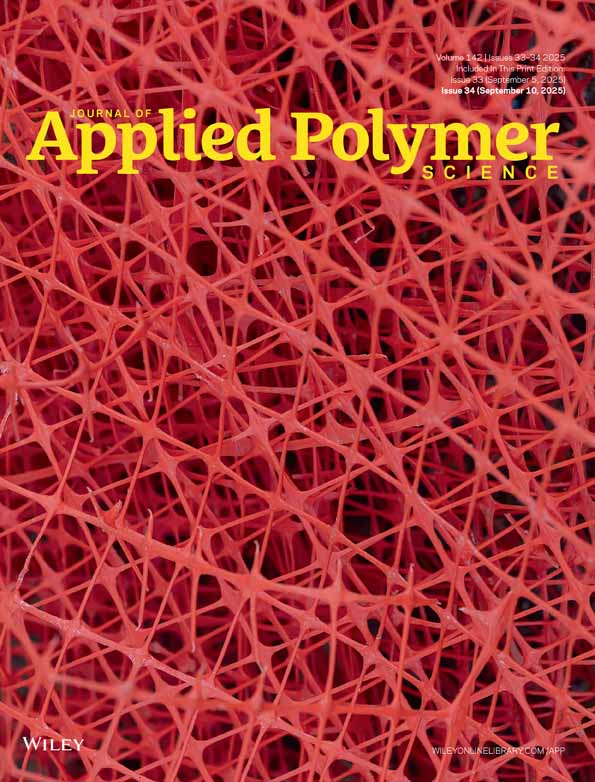Catalyzed hydrolysis of polyethylene terephthalate melts
Abstract
The effect of zinc catalysts on the hydrolytic depolymerization of polyethylene terephthalate (PET) melts in excess water was studied using a 2-L stirred pressure reactor at temperatures of 250, 265, and 280°C. The main products of the reaction were found to be terephthalic acid, ethylene glycol, and diethylene glycol. Rate constants were calculated from initial rate data at each temperature and found to be about 20% greater than the corresponding rate constants for uncatalyzed hydrolysis. The catalytic effect of zinc, as well as sodium, salts is attributed to the electrolytic destabilization of the polymer-water interface during hydrolysis. The depolymerization rate data at 265°C were found to fit a kinetic model proposed earlier for the uncatalysed hydrolysis of PET. The effect of zinc and sodium salts on the activation energy of hydrolysis, or on the formation of ethylene glycol monomer is unclear. © 1994 John Wiley & Sons, Inc.




